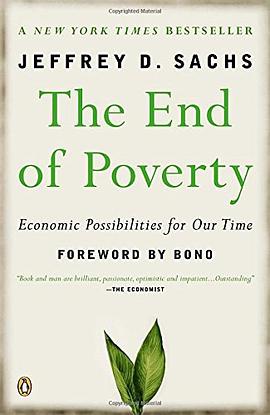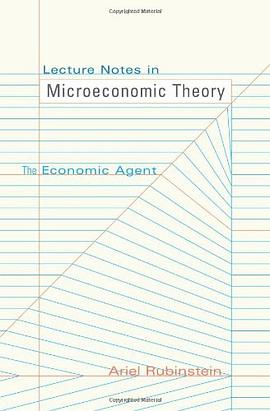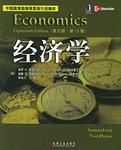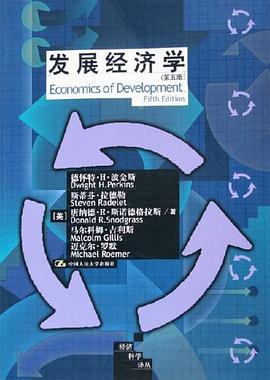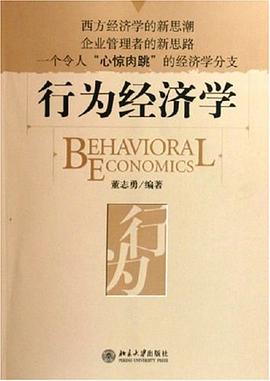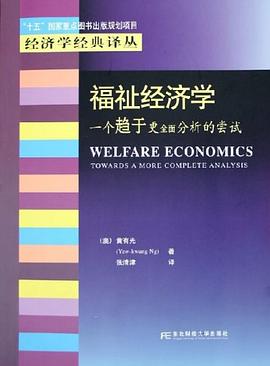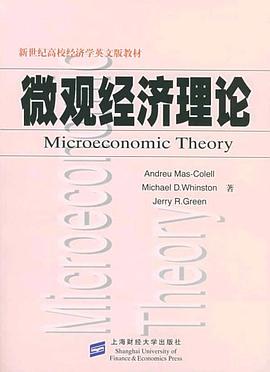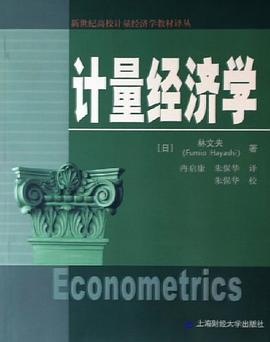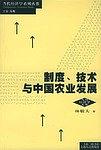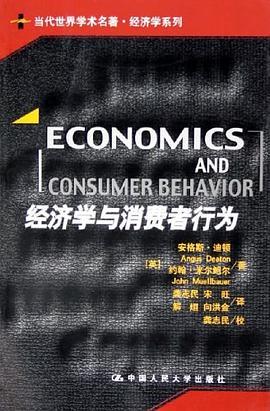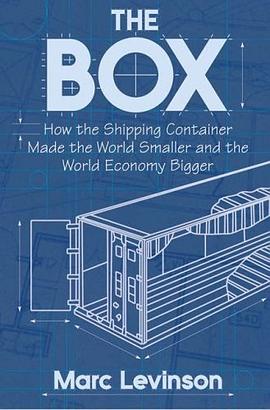
具体描述
In April 1956, a refitted oil tanker carried fifty-eight shipping containers from Newark to Houston. From that modest beginning, container shipping developed into a huge industry that made the boom in global trade possible. The Box tells the dramatic story of the container's creation, the decade of struggle before it was widely adopted, and the sweeping economic consequences of the sharp fall in transportation costs that containerization brought about.</p>
Published on the fiftieth anniversary of the first container voyage, this is the first comprehensive history of the shipping container. It recounts how the drive and imagination of an iconoclastic entrepreneur, Malcom McLean, turned containerization from an impractical idea into a massive industry that slashed the cost of transporting goods around the world.</p>
But the container didn't just happen. Its adoption required huge sums of money, both from private investors and from ports that aspired to be on the leading edge of a new technology. It required years of high-stakes bargaining with two of the titans of organized labor, Harry Bridges and Teddy Gleason, as well as delicate negotiations on standards that made it possible for almost any container to travel on any truck or train or ship. Ultimately, it took McLean's success in supplying U.S. forces in Vietnam to persuade the world of the container's potential.</p>
Drawing on previously neglected sources, economist Marc Levinson shows how the container transformed economic geography, devastating traditional ports such as New York and London and fueling the growth of previously obscure ones, such as Oakland. By making shipping so cheap that industry could locate factories far from its customers, the container paved the way for Asia to become the world's workshop and brought consumers a previously unimaginable variety of low-cost products from around the globe.</p>
作者简介
Marc Levinson is an economist and historian specializing in business and finance. He was formerly finance and economics editor of The Economist, worked as an economist at a New York bank, and served as senior fellow for international business at the Council on Foreign Relations. For more information, check out his website at www.marclevinson.net.
目录信息
读后感
1.如果你想要了解:为什么体力工人会排斥文明,相反,他们(码头工人)更珍惜“好喝酒、好打架”的名声。这本书,会给出一定的原因与现象描述——这说明:“粗人”现象是全球化的,而非中国特有的。 2.如果你读《第五项修炼》读不太明白,那么,先读这一本,而后,想想,为什...
评分集装箱在我这外行看来,本来就如此。本书则详细考证其发展历程。可惜的是有一些资料随着纽约港务局在911中被毁而消失了。 五六十年代的美国,运输业创新者麦克莱恩想到了集装箱运货的主意(他不是第一人),但是他要面对的阻止生产力提高的三大因素:政府的管制、行业协会的垄...
评分这本书进入我的视线范围是因为它出现在了Bill Gates书单里,然后又作为贸易出身的人,觉得有阅读一下的必要。 这本书说了什么? 是贸易全球化?海运发展?运输成本的降低?还是集装箱对制造业的影响? 这些问题在我读这本书之前都在脑中掠过。 而这本书完全没有针对以上任何一...
评分现在通过集装箱来运输货物已是常态,世界各个码头每天集装箱的装卸量是惊人的。但在集装箱出现并成为运输业的主流之前,这是人们难以想象的。集装箱本身是一件的东西,它主要的作用就是降低了货物运输的成本,从而改变了世界经济的形态。 在1956年第一艘装有集装箱的油...
评分今天我们生活在一个全球化的世界。我们身边的许多产品,都是由全世界各地飘洋过海而来。就拿iphone来说,它的设计与研发在美国总部完成,而iphone处理器是由三星在韩国制造的,屏幕则来自日本,还有许许多多小零件,像是来自法国的陀螺仪传感器,来自荷兰的NFC通讯模块。这些创...
用户评价
天哪,我该怎么形容这本书带给我的感觉?简直像是在一片陌生的森林里迷失,但却又无比享受这份迷失。作者的文字有一种魔力,能将最寻常的意象描绘得惊心动魄,又能将最奇幻的场景写得触手可及。我发现自己常常会因为书中某些细微之处而停下来,反复琢磨。比如一个眼神,一句对话,甚至是一个物件的描写,都似乎蕴含着某种深意。它不是那种有明确情节推进的书,更像是在描绘一种氛围,一种状态。我感觉自己沉浸在其中,被那种情绪所包裹,无法自拔。这本书让我开始重新审视自己过往的一些经历,一些选择,它们在书中的映射让我看到了不一样的角度。我喜欢这种不确定性,这种可以有多种解读的可能性。它不是告诉你一个故事,而是让你去创造属于你自己的故事。
评分这真是一本……我到现在都还在回味。不是说它有多么惊心动魄,或者情节多么复杂,而是那种奇妙的、挥之不去的感觉。打开这本书,仿佛进入了一个全新的维度,一个我从未想象过的空间。作者构建的世界极其细腻,每一个角落都充满了细节,仿佛你可以触摸到那些真实的纹理,听到那些细微的声响。我尤其喜欢书中对于人物内心世界的描绘,那种纠结、那种挣扎、那种不经意的闪光,都写得 so real。我常常在阅读的时候,会停下来,反思自己,思考人性的某些面向。有时候会觉得心头一紧,有时候又会感到一股暖流涌过。这本书没有给我答案,但它抛出了很多问题,让我开始审视自己,审视我身边的世界。它不是那种读完就丢的书,而是会让你反复咀嚼,每次重读都会有新的体会。我迫不及待地想和我的朋友们分享,虽然我不知道该如何准确地描述它的内容,但我知道,他们一定会和我一样,被它深深地吸引。
评分这是一本挑战读者认知极限的书。它以一种极其独特的方式,将我带入了一个我从未设想过的世界。作者的想象力简直是天马行空,但又并非脱离实际,反而能让你在荒诞中找到一丝真实的印记。我喜欢书中那种隐晦的、留白的叙事风格,它不直接告诉你一切,而是让你去自己去感受,去推断,去填补那些空缺。每一次阅读,我都会发现新的东西,感受到新的含义。这本书让我开始审视自己对于“现实”的定义,开始质疑那些被普遍接受的观念。它不是一本轻松的书,你需要投入大量的精力去理解它,去消化它。但正是这种挑战,才让它如此引人入胜。我感觉自己通过这本书,经历了一场精神上的冒险,我变得更加开放,更加愿意去接受那些未知和不确定。
评分哇,我真的要吹爆这本书!一开始我抱着试试看的心态翻开,结果直接一头扎进去了,根本停不下来。作者的叙事手法简直绝了,时而跳跃,时而沉浸,让人完全跟不上节奏,但又心甘情愿地被他牵着鼻子走。我喜欢那种层层剥开的神秘感,每一次以为自己快要触及真相的时候,他又会巧妙地将你引向另一个方向。书中的一些场景,简直像电影画面一样在我脑海中播放,清晰得不可思议。我感觉自己就像那个置身于故事中的角色一样,体验着他们的喜怒哀乐,感受着他们的迷茫和困惑。而且,这本书让我对一些我习以为常的事物产生了全新的看法。它迫使我去思考“为什么”,去质疑那些所谓的“理所当然”。我真的很少能遇到这样一本能让我从内到外都感到震撼的书,它不仅仅是一次阅读体验,更像是一次灵魂的洗礼。
评分讲真,这本书有点……难以言喻。我不知道该如何用简单的词语去概括它。它不像我平时看的那些畅销书,有明确的剧情走向和结局。它更像是一种……体验,一种情感的共鸣。书里的角色,我很难用“好人”或“坏人”来定义,他们都太真实了,太复杂了。他们的选择,他们的挣扎,都让我感同身受。有时候我会为他们感到悲伤,有时候我又会对他们的某种坚持感到敬佩。作者的笔触非常细腻,能够捕捉到那些生活中稍纵即逝的微小情绪,并将它们放大,展现在读者面前。我读完之后,心里久久不能平静,仿佛有千言万语想说,却又不知从何说起。它不是那种让你看完会哈哈大笑的书,也不是那种让你看完会潸然泪下的书,但它一定会让你在阅读的过程中,陷入一种深深的思考,一种对生命的、对人性的、对存在的思考。
评分我要找malcolm maclean的传记来看。码头工会虽然百般阻挠,但是完全挡不住技术创新(当然你也可以说是创新的资本家为降低成本用尽一些办法)前进的脚步啊!想到1453年,穆罕默德靠着船坚炮利进攻君士坦丁堡兵临城下,城里的居民和守卫在干啥呢?跪在地上祈祷啊……咳咳扯远了,商业故事真的会削弱俺对于资本以外的力量所剩无几的信心啊~_~
评分一个改变世界但基本做贡献不挣钱的行业
评分一个改变世界但基本做贡献不挣钱的行业
评分今天的人们已经很难想象这个丑陋的铝制二十英尺标准的大盒子是如何深刻而不可逆转地改变了我们日常生活的每一个角落。标准化大规模的工业生产并没有在新时代失去他的魅力,反而以一种更加无可阻挡的趋势席卷全球。书中提到纽约港的衰落和新泽西伊丽莎白港的崛起时真是慨叹万分,站在风口的人,永远永远不要逆风走下去 #美国的工会真心就是毒瘤癌细胞
评分很好的常识读物
相关图书
本站所有内容均为互联网搜索引擎提供的公开搜索信息,本站不存储任何数据与内容,任何内容与数据均与本站无关,如有需要请联系相关搜索引擎包括但不限于百度,google,bing,sogou 等
© 2026 qciss.net All Rights Reserved. 小哈图书下载中心 版权所有



